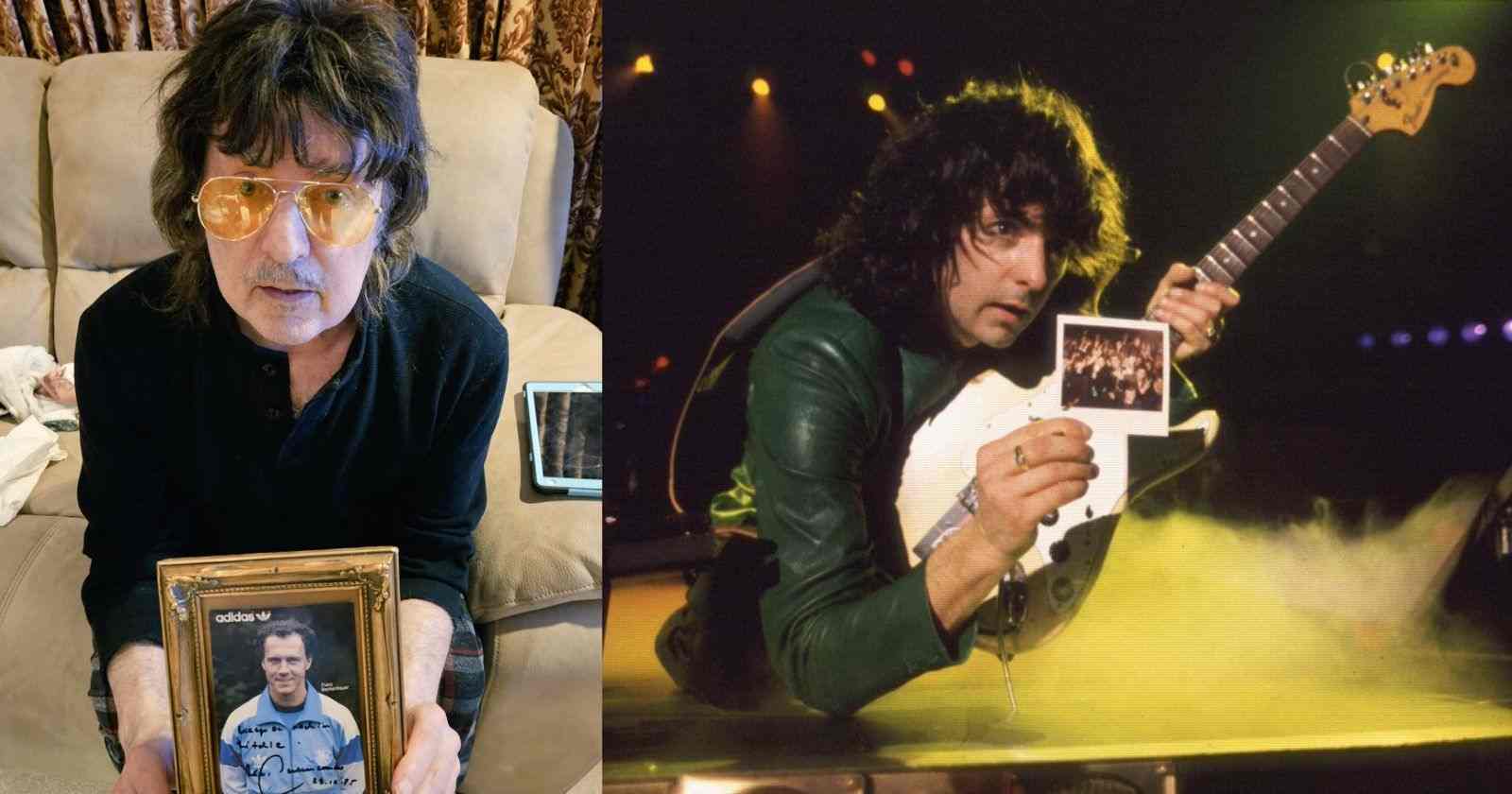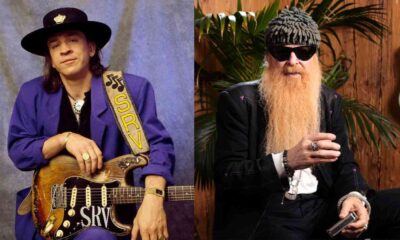ARTICLES
The 2 musicians that Ritchie Blackmore criticized in the early 70s
When you think about guitar heroes, Ritchie Blackmore is certainly up there with Jimi Hendrix, Jimmy Page, Tony Iommi and many others. Born in 1945, the British musician helped to form Deep Purple in the late 60s, was a crucial part of their sound and then managed to also make his own band, Rainbow, one of the most influential Hard Rock groups of all time.
But like Keith Richards, for example, Blackmore is also known for being a really sincere person. He never was afraid to tell his real opinion on other artists. In an interview with Cameron Crowe, who would in the future be a famous director, for Creem magazine in 1975, he mentioned two artists he really didn’t like at the time.
The 2 musicians that Ritchie Blackmore criticized in the early 70s
In 1975, Blackmore already was an accomplished musician and had sold millions of records worldwide with Deep Purple. He had just formed Rainbow and it would be the start of really successful years with his group. He was asked by Crowe about the state of Rock and Roll music during the last years and he said that names like Hendrix gave him faith but then criticized more recent acts (at the time) like David Bowie and Alice Cooper.
“Anyway, he (Hendrix) gave me the faith. I had thought that people just didn’t want to hear good guitar solos anymore. I thought they wanted to hear harmony singers like – at the time -the Hollies, and the Beatles, and they were great, but musically nothing.”
Ritchie Blackmore continued:
“I’m afraid at the moment, with David Bowie and Alice Cooper and people like that, the scene has dampened again. So it’s slipping back. There’s nothing happening musically with people like David Bowie and Alice Cooper, but some people seem to think they’re the new messiahs so, I guess that’s the way it is,” Ritchie Blackmore said.
The guitarist wasn’t such a big fan of the theatrical side of many artists during their live performances. But as pointed out by Udiscover Music, Blackmore once said Jethro Tull used that wisely but that other artists used some kind of “tomfoolery”.
“I like theatrics to a point, especially Jethro Tull. He (Ian Anderson ) uses theatrics very nicely, he’s very musical, and he uses a touch of theatrics, which I think is very good. I’m not too sure about the Alice Coopers and the Rolling Stones, the way they have to use them. I don’t think they would maintain an audience if they didn’t get up to some tomfoolery, as we say back in England,” Ritchie Blackmore said.
When Blackmore said that, Alice Cooper was just starting his solo career, releasing the album “Welcome To My Nightmare”. Bowie on the other hand, would release his praised album “Young Americans”.
Blackmore didn’t allow Glenn Hughes to record with David Bowie
When Blackmore left Deep Purple, the band had Glenn Hughes as the co-singer and bassist. Bowie watched the band performing at the California Jam festival in 1974 and decided to invite Hughes to sing on the album “Young Americans”. But as the bass player recalled in an interview with Classic Rock in 2021, Blackmore blocked the contribution.
“I was in LA and I got a call from David Bowie’s personal assistant Corinne. She said Bowie had been watching footage on TV of Purple playing the California Jam and he’d been impressed by my performance. So I met up with him and we sat up talking all night. At the time, he was into his blue-eyed soul thing. We shared a mutual love of Luther Vandross! Later Bowie asked me to sing on his Young Americans album. Unfortunately Ritchie Blackmore was vehemently against it. He thought it would be bad for Purple’s image. I was a bit pissed off about that,” Glenn Hughes said.
Although the collaboration didn’t happen on that album, Hughes and Bowie remained good friends and he even lived in the bass players’ house in Beverly Hills while writing “Station To Station” (1976). “I stayed friends with Bowie. We were both into blow, only Bowie’s paranoia on cocaine was far greater than mine. And I thought I was pretty crazy! Bowie was very intelligent but he suffered bizarre mood swings when he was high. Our relationship was very intense in 1975 and ’76.”
He continued:
“He lived at my house in Beverly Hills for a time. I was loaded on coke, so was Bowie, the champagne flowed… it was a great period. I’ve never smoked a lot of pot, so my memories of those times are pretty vivid,” Glenn Hughes said.
Curiously, according to Hughes, it was Bowie who helped Deep Purple to continue after Blackmore left the band. They were living together at the time and Bowie told Hughes that they should continue, get another guitar, who shouldn’t look or sound like Blackmore. It was actually Bowie who took Hughes to Tommy Bolin’s audition.
So Bowie liked Purple’s music and there is another curious story that shows that. The King Crimson guitarist Robert Fripp collaborated with the late artist on the albums “Heroes” (1977) and “Scary Monsters” (1980). As Fripp told Uncut magazine in 2020, Bowie once told him to “think Ritchie Blackmore” during the recording sessions.
“It was on the ‘Scary Monsters’ session. The sessions began around midnight and I think it was “Up The Hill Backwards”. I said to David, ‘Any suggestions?’ David said, ‘Think Ritchie Blackmore.’ I knew exactly what David meant. So my playing was nothing like Ritchie Blackmore, but I knew what David meant – that was a direct piece of advice,” Robert Fripp said.
I'm a Brazilian journalist who always loved Classic Rock and Heavy Metal music. That passion inspired me to create Rock and Roll Garage over 6 years ago. Music has always been a part of my life, helping me through tough times and being a support to celebrate the good ones. When I became a journalist, I knew I wanted to write about my passions. After graduating in journalism from the Pontifical Catholic University of Minas Gerais, I pursued a postgraduate degree in digital communication at the same institution. The studies and experience in the field helped me improve the website and always bring the best of classic rock to the world! MTB: 0021377/MG










